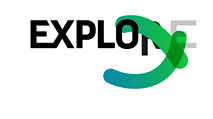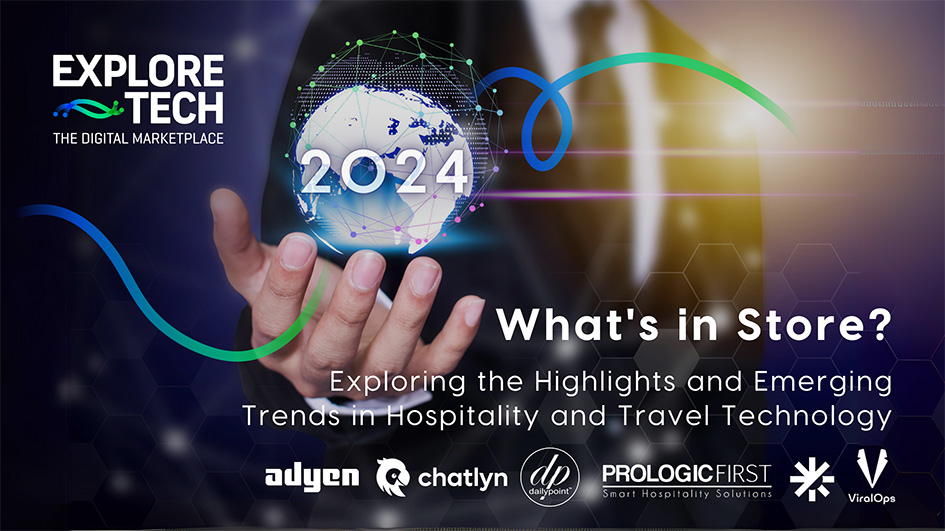
.png)
With hospitality businesses under constant pressure to do more with leaner teams, workforce automation and staff technologies are no longer optional—they’re essential. In the latest session of the TECH Matchmaker Webinar Series by ExploreTECH, a panel of industry experts explored how hotels can practically adopt automation, avoid common pitfalls, and empower their teams with the right technologies.
This session featured insights from:
Shari Dragonja, representing HotelKit,
Linda Girrbach, from RobosizeME,
and Baris Borucu, of Triptease.
While each expert approached automation from a different angle, a clear message emerged: technology should simplify work for staff, not complicate it—and certainly not replace them.
Behind-the-scenes efficiency: why operational tech should be every hotel’s starting point
Shari Dragonja of HotelKit focused on the foundations: internal operations. For many hotels, back-of-house processes are where inefficiencies build up—whether it's in daily task management, shift handovers, or general staff communications. These are the processes that often remain manual, fragmented, and prone to error.
Shari explained how HotelKit’s solutions digitize these operational processes, freeing up staff from chasing updates and managing tasks through outdated channels like WhatsApp or paper logs. This kind of automation isn’t about sophisticated AI or complex workflows—it’s about simple, structured communication and clarity.
Her key advice to hoteliers:
Prioritize technologies that solve operational frustrations staff are already facing.
Avoid overcomplicating processes by introducing tools that are too complex.
Remember that smooth internal operations ultimately shape the guest experience.
As Shari summed up: “If your team is spending less time managing tasks manually, they’re spending more time where it matters—with the guest.”
Small steps build trust: RobosizeME’s roadmap for overcoming AI skepticism
Linda Girrbach from RobosizeME tackled one of the biggest barriers to automation in hospitality: resistance to change. Many hotel teams, Linda explained, view AI and automation as threats, fearing these tools will replace jobs rather than enhance them.
But RobosizeME’s experience shows that starting small is the key to overcoming this fear.
According to Linda, hotels should:
Begin by automating simple, rule-based tasks such as invoice processing, data entry, or email confirmations.
Give staff visibility into what’s being automated and why.
Celebrate quick wins to build staff confidence and trust.
Linda stressed that hotels don’t need to adopt large-scale automation projects to see results. Incremental change, with clear communication and support, leads to sustainable adoption.
“Automation should never feel like it’s happening behind closed doors,” Linda noted. “Your staff need to be involved in the journey to trust it.”
Her takeaway for hotels: treat automation as a collaborative process that empowers your people. Over time, staff will not only trust the technology but advocate for it.
Automating for revenue: Triptease on smart pricing, personalization, and booking recovery
Baris Borucu of Triptease shifted the conversation to commercial automation, highlighting how hotels can use AI to drive more direct bookings and protect their rates against OTAs.
The issue, Baris explained, is straightforward but critical:
Hotels are losing direct bookings because OTAs often undercut their direct rates without their knowledge.
In the Middle East, over 50% of bookings are lost due to rate undercutting.
Direct booking conversion rates are also low—around 4.2%—meaning hotels are missing out on significant revenue.
Triptease addresses this challenge with AI-powered price monitoring and rate matching. The platform detects when a guest is being shown a lower price elsewhere and dynamically matches or beats that rate directly on the hotel website, in real time.
However, price parity is just the start. Baris emphasized the value of:
Personalizing website experiences based on visitor behavior, location, and preferences.
Retargeting non-bookers using dynamic ads that remind them to complete their booking.
He noted that without collaboration between revenue, marketing, and commercial teams, even the smartest automation tools won’t deliver their full value.
Baris’s key message: “Automation should directly support your revenue goals. It’s not just an operational tool—it’s a commercial strategy.”
Closing message: automation is about solving real problems
Wrapping up the session, ExploreTECH emphasized that workforce automation isn’t about embracing technology for its own sake. It's about finding real, operational or commercial problems—and solving them in ways that empower teams and simplify processes.
The combined takeaways from HotelKit, RobosizeME, and Triptease serve as a roadmap for hotels:
Fix operational bottlenecks first. If your back-of-house processes are inefficient, your guest experience will always suffer.
Introduce automation gradually. Build staff confidence by starting small and growing adoption over time.
Use automation to drive direct revenue. Price parity, personalization, and retargeting are essential tools to boost direct bookings.
ExploreTECH’s TECH Matchmaker Webinar Series aims to demystify hotel technology and help hoteliers navigate digital transformation more confidently. This session demonstrated that automation isn’t a future concern, it’s a current necessity, and one that can bring immediate operational and commercial benefits when approached thoughtfully.
Missed the session? The full recording is available via ExploreTECH, and it’s highly recommended viewing for leadership and operations teams alike.
Hotels that share these insights internally will be better prepared to navigate their automation journey, one step at a time.






